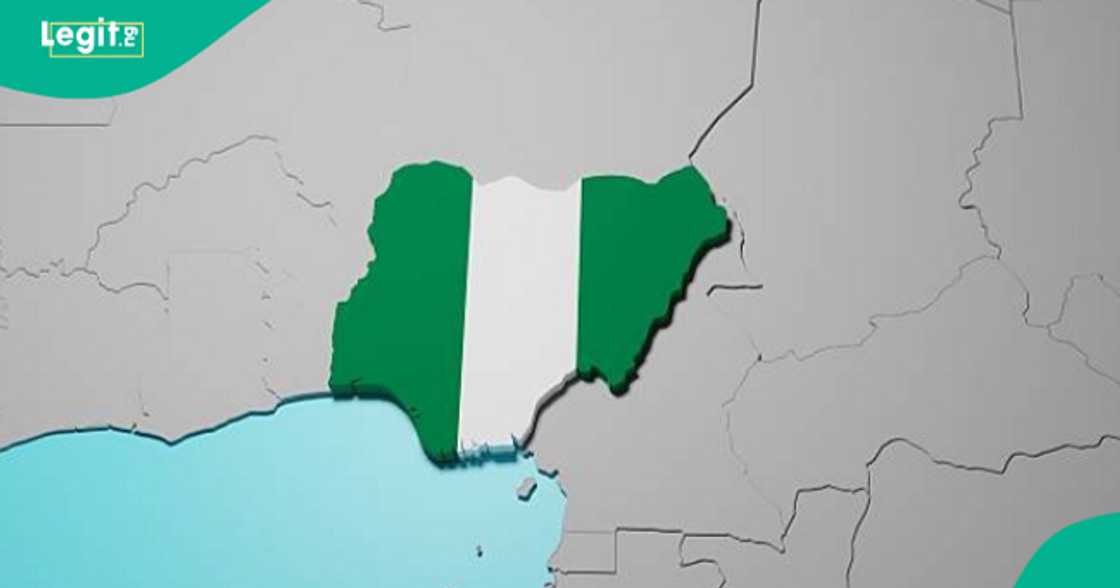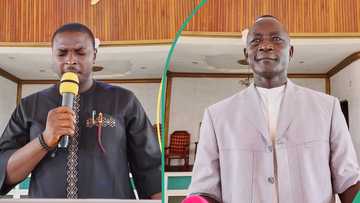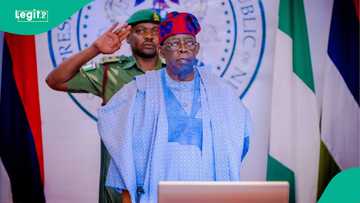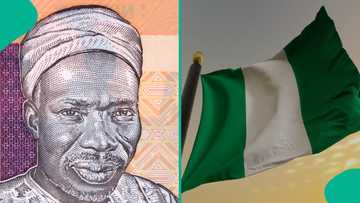Nigeria at 65: Milestones Country Has Achieved since Independence
- Today, October 1, 2025, Nigeria marks 65 years of independence since 1960, and the nation has come a long way creating and shaping its own identity
- As we celebrate this special day, we reflect on Nigeria's journey to freedom and the important facts to note about the country's Independence Day
- Nigeria's growth over the years has been considerable, with the country navigating various challenges and striving for a brighter future
Nigeria's Independence Day, celebrated on October 1 of every year, commemorates the country's freedom from colonial rule in 1960.
This occasion paved the way for an important change in Nigeria's status and ignited a journey towards self-governance and progress.

Source: Getty Images
As the country celebrates 65 years of independence, here are some interesting things to have at the back of your minds.
How the name Nigeria came about
The creation of Nigeria's name is credited to Flora Shaw, a notable British journalist, who in 1897, suggested the term as a shorthand for the vast territories surrounding the Niger River.
The river, which dominated the country's landscape, had played a great role in shaping the country's geography, thereby making a fitting namesake.
It was gathered that Shaw's proposal effectively unified the various designations for the region under a single, concise title.
Her connection to the region deepened when she married Lord Lugard, the architect behind the 1914 amalgamation of the Northern and Southern protectorates, an important moment in Nigeria's formation.

Source: Getty Images
In the wake of Nigeria's 65th independence anniversary, Legit.ng sheds light on the evolution of Nigeria's identity, from its colonial past to its modern-day nationhood.
How Nigeria gained independence in 1960
Nigeria gained total freedom from Britain on October 1, 1960, after many years of being under colonial rule.
The journey to independence was slow and steady, starting from constitutional reforms in the 1940s and 1950s that was marred by limited self-governance.
Political parties like the NCNC led by Nnamdi Azikiwe, the Action Group led by Obafemi Awolowo, and the NPC led by Ahmadu Bello played great roles in pushing for greater autonomy.
Through negotiations and constitutional conferences, Nigeria gradually headed toward full sovereignty.
The 1954 constitution established a federal system, giving the regions some powers of self-rule.
By 1957, Nigerian leaders had gotten control of internal self-government, and pressure for complete independence heated up.
In the end, Britain finally accepted to grant Nigeria full independence, and the country became a sovereign state in 1960, with Sir Abubakar Tafawa Balewa as the first Prime Minister and Nnamdi Azikiwe as Governor-General.
In 1963, Nigeria began to practise a republican constitution, making Azikiwe the first President.
Nigeria returned to civilian rule in 1999
Nigeria finally returned to civilian rule in 1999 after many years of being under military governments.
It was a special moment in history, because for the first time since independence in 1960, the country began what has become its longest run of democracy.
The elections were held in February that year, and Olusegun Obasanjo, who had earlier ruled as a military leader in the late 1970s, won and was sworn in as president, paving the way for a new chapter.
First Africans in Olympics bobsledding event
In 2018, many years after its independence, Nigeria made history in a way that nobody expected.
For the first time ever, the country was represented at the Winter Olympics, and even became the first Africans to participate.
Three Nigerian American women, Seun Adigun, Ngozi Onwumere and Akuoma Omeoga, came together to create a bobsled team from scratch.
They trained with limited resources, often practicing on false tracks, but their efforts paid off in the end.
By qualifying for the Games, they didn’t just become the first Nigerians to compete at the Winter Olympics, they also became the first Africans to enter the bobsled competition.
Their story inspired many people around the world, proving that passion and determination could break barriers and open new chapters in sports history.
How Nigeria won first Olympic gold medal
The 1996 Olympics was a great time for Nigeria as the country picked up its very first Olympic gold medal, and not just one but two.
The men’s football team impressed the world by taking the top prize, while Chioma Ajunwa made her way into history with a gold in the women’s long jump.
By the time the competition ended, Nigeria had collected two golds, a silver and three bronze medals, making it the nation’s most successful Olympic performance to date.
How soial media changed Independence Day celebration
Meanwhile, Legit.ng previously reported that social media changed October 1st into a global digital carnival, marked with hashtags, memes, TikTok videos, and live-streamed events.
For some time now, Independence has now been celebrated with hashtags like #NigeriaAt65 trend across X (Twitter) and Instagram.
Source: Legit.ng





